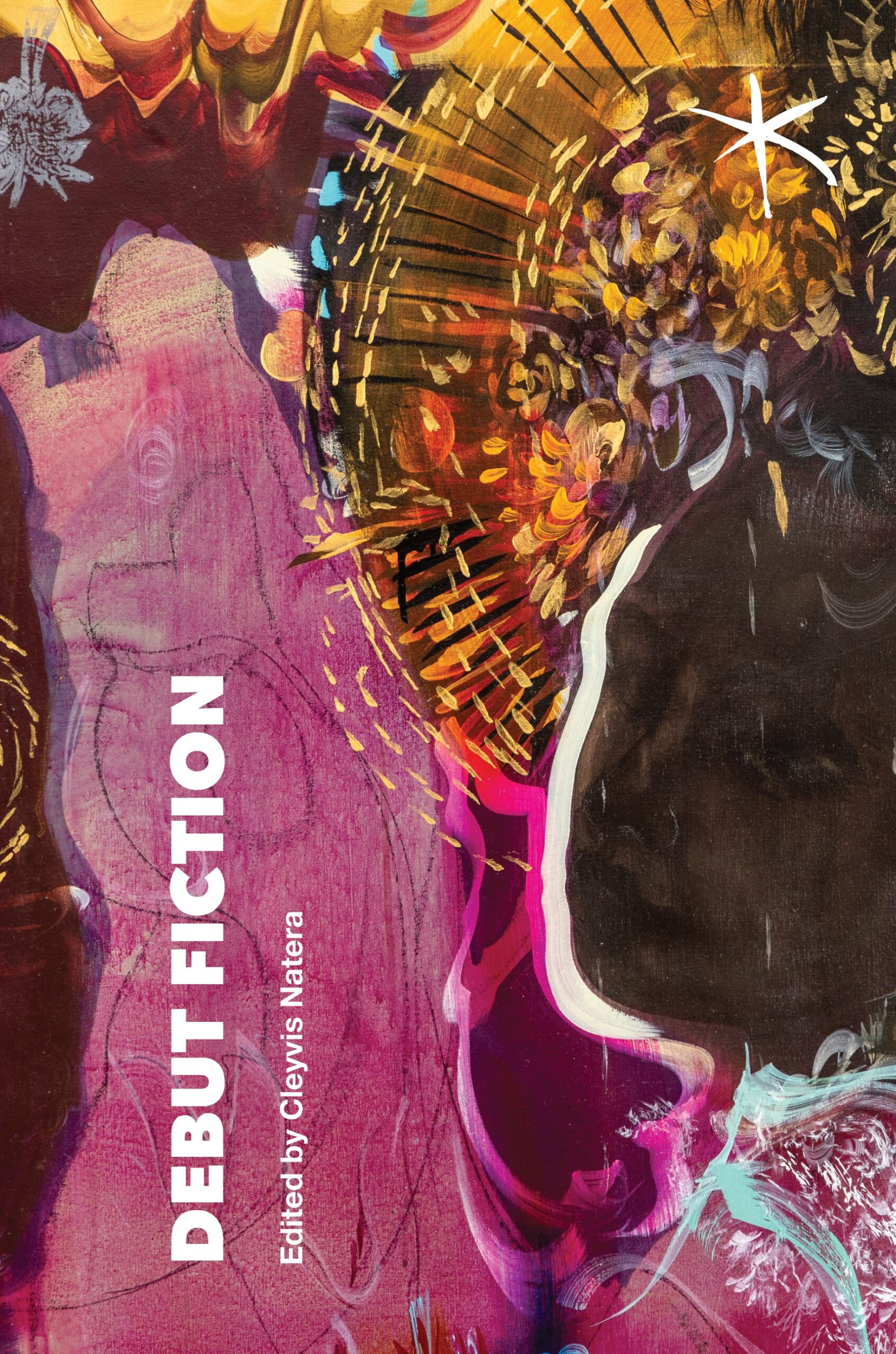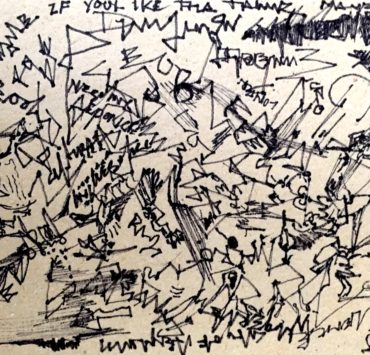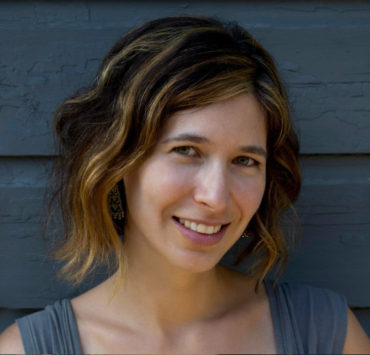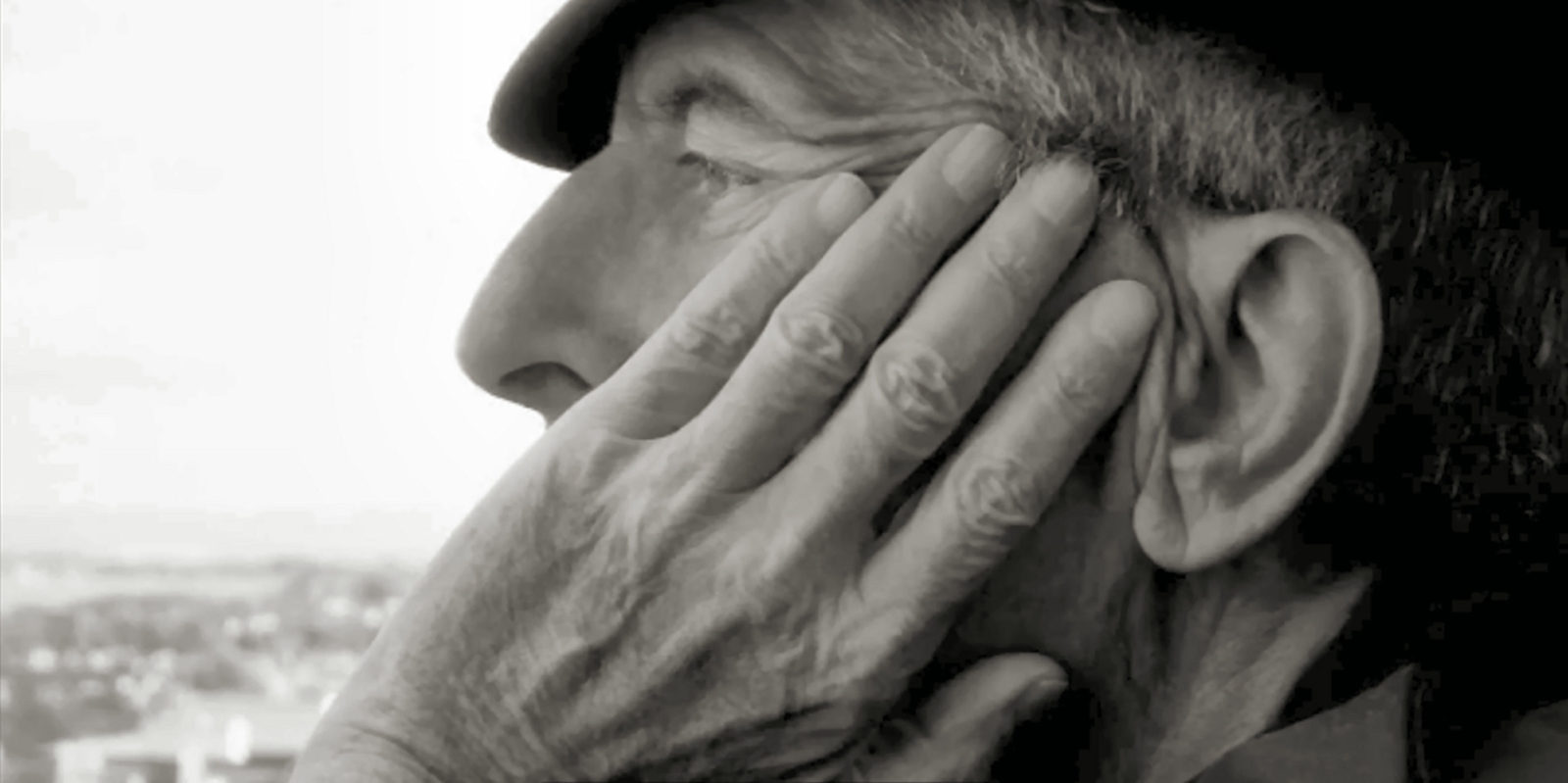
In the summer of 1991, I took a long bus ride from Kaniv in the Ukraine to Odessa by the Black Sea. I was 15. It was cloudy most of the way. We stopped in cornfields to use the bathroom. Each of us squatting in different leafy sections we hoped were private, then booking it fast back to the bus scared to be left alone in a cornfield, in what was then the U.S.S.R. I remember the almost-Iowa style rural landscape, the kind Ukrainian friends, the breaking off of chunks from a crusty loaf of bread and eating whole tomatoes like apples, the way my stomach hurt from all the new food and also because I think I loved someone back home. I remember that I missed America for the first time, how I could imagine really loving the flag again. But what I remember most of all was listening to Leonard Cohen.
Because it was the 90’s, I sported a small and much-missed Walkman for the travel days. The friends around me read, or played card games, or slept. (Most of us were teenagers participating in the Sister Cities program.) Prone to motion sickness my whole life, I couldn’t do much than gaze at the steady horizon through the steamy bus window. So I was stuck holding the world in place while I listened to Leonard Cohen. I don’t remember what albums they were, because they were mixes. Back when we all made mixtapes, I miss that—palming a plastic love under school desks to pass to one another. My brother’s friend had made them. She was, in my mind (because she was older and gorgeous, with a cute bob that made her look crisp and timeless in a way I never felt), a Leonard Cohen expert. I immediately copied all of the tapes and took them with me to Russia, then to the Ukraine, and then on that bus ride. I listened to every single song over and over until they grew into a thick tapestry hovering around me in the air.
“Bird on a Wire” included some of the saddest, most beautiful lyrics I’d ever heard. I didn’t know then that it would help me through some of the deep depressions I’d enter in adulthood. Later, I’d learn it was the first song he wrote to pull himself out of his own deep well of gloom. “Famous Blue Raincoat” was such a gorgeously full, yet tricky epistle that I still try to mimic some of its smaller moments in my own work today. “Chelsea Hotel No 2” let me discover the ending I’ve been trying to nail for years: “That’s all, I don’t think of you that often.” (I mean, it’s an entire ode to Janis Joplin that simply ends with “That’s all, I don’t even think of you that often,” that’s nuts, and maybe genius.) I remember the song “Last Year’s Man” playing as the rain came down on that bus through the Ukraine, my breath making a cloud on the window and the line “the skylight is like skin for a drum I’ll never mend,” making me feel as alive with words as I had ever been.
We settled by the Black Sea, staying in small, weathered white beach shacks that never cooled off at night and lacked doors that shut properly so flies were everywhere. I would put my gray fuzzy earphones on and listen to Leonard Cohen again to block out the buzzing of the winged beasts. In the day, we’d swim in the warm ocean and take trips to the town in too-crowded buses, but I would crave that time at night when it was just me, the moving darkness of the salty sea, and Cohen’s deep layered voice. He was an outsider speaking to an outsider and oh how I needed that rope of music to pull me back into the world.
A lot of things happened to me when I was fifteen. Some good. Some bad. A year of paradigm shifts. But one of the things that “happened” was that I began to realize what words could do. I had become obsessed with them much earlier, but I was beginning to see how they could change you fundamentally and stay with you, knotted into the blood for later use. Years later, I’d be in New York City in graduate school for poetry. I’d sit on a window ledge at a party for some actors we knew. I’d be smoking a Marlboro Light, looking out over the snow. I’d lean down to ash and realize that we were on Clinton Street. I’d sing quietly, “New York is cold, but I like where I’m living, there’s music on Clinton Street all through the evening.” My friend T would sing too. And I’d understand that it was partly because of him that I was here, singing in the East Village, broke, writing poems, and oddly full of hope.
I’m having trouble with hope right now as I write this from my home office in Kentucky. I am deeply worried about the country, about the world, about our dear, dear earth. I have cried and grieved and today I find myself just sitting here hoping for hope. I’m waiting for it. Like an animal waits for Spring. And just like when I was staring out the window while we drove through the vastness that is the Ukraine, I’m staring out the window at our silver maple tree now, and I’m missing America. I’m an outsider again and I need a rope. And so just like on that bus ride, I’m listening to Leonard Cohen.
Leonard Cohen died over two months ago. He was 82, which seems young, but I know it’s not. I never met him nor saw him in concert, but I have felt tethered to him for 25 years. And perhaps earlier, since Joni Mitchell’s “That Song About the Midway” was a key song in my life. At 8, I knew all the lyrics and I knew what they meant. Or I thought I did. In fact, during a drive from Glen Ellen to Sonoma in Northern California during my parents divorce, my dad caught me singing along to the Bonnie Raitt version. He turned it down and asked if I could explain the lyrics. I could. I did. I still think I got it right. It wasn’t until I was living in Brooklyn twenty years later that I found out that the song was written about Leonard Cohen. Even before I knew his work, I was listening to the singers he had influenced in one way or another.
Then, of course, there’s the heartbreaking song “Hallelujah,” which was made famous by Jeff Buckley. That definitive version, which is actually a cover of John Cale’s cover of Leonard Cohen’s song, is soul shattering. After Buckley died, and the song began to get recognized, Trish and I, living in a small apartment in Greenpoint, Brooklyn, played it over and over until, frankly, we wore it out. It’s been hard for me to listen to it for years because, well, I had actually listened to it too much. I remember we ran into our friends, the members of the Detroit-based band “The High Strung,” at the Turkey’s Nest bar in 2000 and Trish said, “Oh you have to listen to this song.” And the drummer, Derek Birk smirked and responded, “Let me guess, it’s Jeff Buckley covering Leonard Cohen’s ‘Hallelujah.’” He was right of course. Everyone was wearing it thin.
But I admit, I’m listening to it now. I don’t know how else to say this, but It’s working. There’s sunlight coming in through the window onto my hands now as I type. Each ray is transformed a little by the shapes of the yellowing maple leaves, the way light is filtered and changed by what it has to pass through. The desperation of this song is reminding me that a lot of great art comes out of pain. Hard times allow us to dig deep and cry out and hopefully we can just keep breathing, keep creating, and not let ourselves get swept up by the giant river of cruelty that seems to be humanity these days.
T and I were messaging back and forth today and talking about Leonard Cohen songs. She said, “I love that he was such a slow writer.” I love that too. The engine of the world seems to be interested in production, production, production. But sometimes silence is okay too.
Sometimes it’s okay to grieve, to sit with grief, or to write so hard that you can’t possibly get it right, until maybe you do. I’m going to take my time during these dark times.
But, despite the hopelessness, the fear, how I feel unsafe as a Latina woman in a state so conservative you can probably see the angry red stain from the sky, I am still grateful for words. As Terrance Hayes begins his poem “God is an American” by saying “I still love words.” I too, still love words. I’m going to use them to get me though this. Maybe I need to pretend I’m on that bus, missing my America, missing the America I thought I knew, feeling lonely and too far away from what I love, an outsider surrounded by other outsiders trying to get through it, but at least there’s words we can turn to, and music we can turn up, at least until we arrive somewhere that feels like home again.
Image Credits: Bill Strain
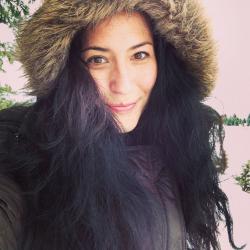
Ada Limón is the author of four books of poetry, including Bright Dead Things, which was named a finalist for the 2015 National Book Award in Poetry and one of the Top Ten Poetry Books of the Year by The New York Times. Her other books of include Lucky Wreck, This Big Fake World, and Sharks in the Rivers. She serves on the faculty of Queens University of Charlotte Low Residency M.F.A program, and the 24Pearl Street online program for the Provincetown Fine Arts Work Center. She also works as a freelance writer splitting her time between Lexington, Kentucky and Sonoma, California.





